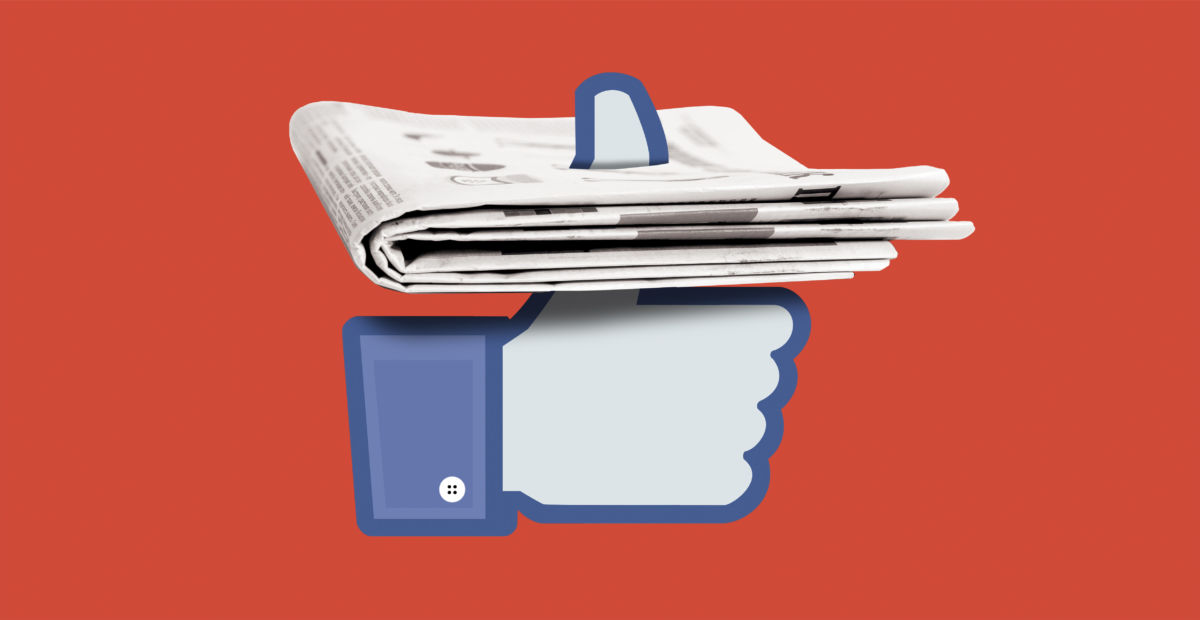The Guardian published an article in 2013 titled “News is bad for you – and giving up reading it will make you happier.” After spouting off ten dangers of news, the only solution the writer offered, as she touted her 4-year break from news, was to stop consuming it altogether.
This binary attitude toward news consumption is an oversimplification, and a dangerous one at that. Granted, modern journalism (if you even want to call it that) has its problems, namely the recent fake news controversies. But genuine reportage is one of the great gifts of democracy, and we’d be foolish to rid ourselves entirely of it.
The solution is not a news purge – a news diet is. But what exactly does that entail?
Just as a diet to lose weight requires deliberate decisions about food intake, a media diet requires that we be deliberate about both the type and amount of news we consume. For most, this means no more news from Twitter and Facebook.

When it comes to deciding what we read, watch, and listen to, it’s tough not to indulge in the endless buffet of links. We inundate ourselves with more and more “news” and share our findings under the assumption that we’re becoming more informed, but are we?
Our modern shift from scarcity to abundance in news often causes us to become overwhelmed, even anxious. Barry Schwartz, a sociology professor at Swarthmore College, calls this the “paradox of choice:” though modern Americans have more freedom and autonomy than any society in history, we don’t see any psychological benefits.
The dizziness that comes from this unbridled freedom paired with countless fear appeals creates a toxic combination. We’re so saturated with polarized information that we yearn to return to the comforting, simplistic baby talk of childhood where feeling trumps logic and complexity is ignored. Some may argue Donald Trump took advantage of this in his recent campaign.
This is where the news diet becomes imperative: choose quality over quantity, even if it costs a few bucks.
Without buying news, or at least subscribing to it, we lose context. Those free-floating articles you see online today are crafted to survive the gauntlet of social media on their own. We’re so numb to information that headlines must be exaggerated, graphic, or divisive in order draw attention and encourage sharing. In fact, the primary factor that determines an article’s virality is how angry it makes the reader.
But real news isn’t viral by nature. It’s neutral, multifaceted, and frankly boring. Writers for the New York Times understand this. Writers for Young Conservatives and Teen Vogue might too, but they don’t care. Their sole purpose is to drive controversy that confirms their audience’s identity. This is why we need to eradicate such options from our media diet.
On the other hand, established newspapers have an incentive to produce quality work, not pageviews. If they don’t, their subscriptions dry up and they’ll go out of business. The Times doesn’t need to battle for name recognition, so they aren’t forced to fabricate stories to attract readers.
Generally, articles on complex topics such as war and foreign policy will fail to spread or generate ad revenue because they’re not sexy. Additionally, such hard journalism is expensive and difficult to produce. The publisher must pay a reporter for a long-term reporting effort, which may not even generate a story.
So we turn to Facebook where our news consists of borderline fiction.
We don’t pay for news, yet we’re all aghast that the quality declines. If Apple suddenly began giving away defective products, would we hunker down and deal with it? If I know my own generation well enough, we’d either demand better products or take our business elsewhere.
Unfortunately, we don’t apply the same logic when reading the news.
Our only hope is a disciplined news diet: no notifications, no aimless clicking. Find a copy of the Times or get The Wall Street Journal sent to your inbox. It might hurt initially to stop the constant flow of information, but less news enables us think rather than regurgitate.
As Publilius Syrus said, “Better to be ignorant of a matter than half know it.”
Dominic Vaiana studies writing and media strategy at Xavier University. His personal articles, essays, interviews, and book recommendations are sent in his monthly newsletter.